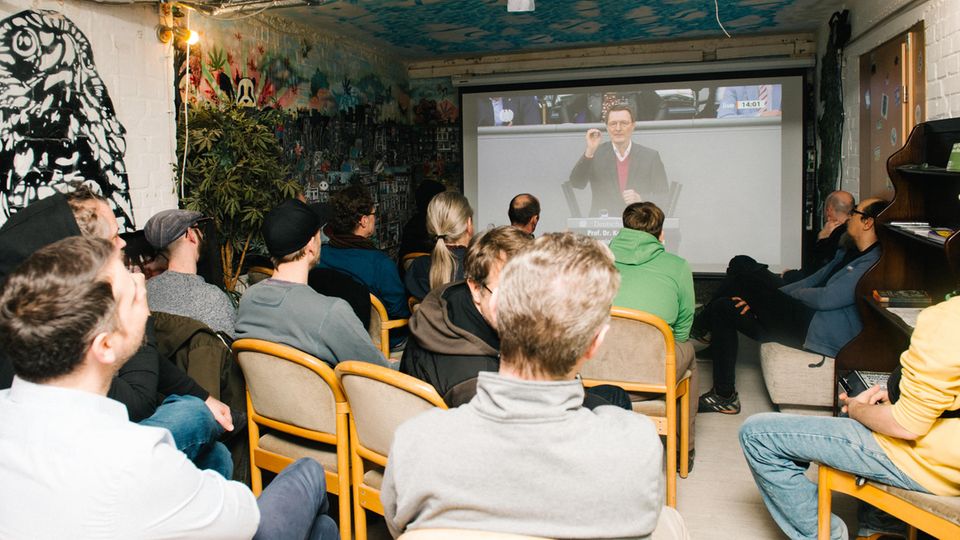Cannabis law
Up to 100,000 files affected: amnesty for stoners could overburden the judiciary
The current draft law stipulates that prison sentences or fines already imposed for cannabis offenses that are no longer punishable under the new law will be waived upon entry into force
© Fabian Sommer / DPA
The partial release of cannabis has been decided in the Bundestag. However, a planned amnesty in the law is making judges and prosecutors sweat.
In connection with the Bundestag vote on the partial legalization of Cannabis has warned Mecklenburg-Western Pomerania’s Justice Minister Jacqueline Bernhardt (Left) against a massive overload of the judiciary as a result of the planned amnesty regulation. “Well-intentioned does not mean well-done,” she criticized, referring to the text of the law. The regulation on the planned amnesty contained therein would lead to an overload of public prosecutors and courts.
The draft law stipulates that prison sentences or fines already imposed for cannabis offenses that are no longer punishable under the new law will be waived upon entry into force. Bernhardt assumes that in Mecklenburg-Western Pomerania alone there are around 6,500 open enforcement proceedings that public prosecutors and courts would have to examine, including around 100 prison sentences that have not yet been fully served.
Cannabis amnesty delay called for
According to Bernhardt, it will be particularly difficult for public prosecutors and courts if the law comes into force on April 1st. The time remaining until then is too short for the judiciary. The minister called for the amnesty regulation to come into force delayed.
Cannabis legalization
The Bubatz Cabinet: These ministers have smoked weed before
The German Association of Judges also warned. “The judiciary nationwide is expecting more than 100,000 files that will have to be checked again in the event of the planned retroactive remission of sentences for cannabis offenses,” said the Federal Managing Director of the Association of Judges, Sven Rebehn, to the editorial network Germany.

After the Bundestag resolution for the controlled release of cannabis, attention is turning to the last hurdle in the Federal Council. The law does not require approval in the Federal Council, but the Mediation Committee would be able to slow it down.
North Rhine-Westphalia wants to lobby the Federal Council to ensure that the law does not come into force until later. Justice Minister Benjamin Limbach (Greens) said on Friday that the remaining time of just five weeks is not nearly enough for public prosecutors and courts to implement the regulations for retroactive remission of sentences in a timely manner. Tens of thousands of cases would have to be examined in your state alone.
Hamburg’s Justice Senator Anna Gallina (Greens) also criticized the passage of the law “without giving the states sufficient time to prepare for implementation.”
Sources: NDR, RND (1), RND (2)DPA


